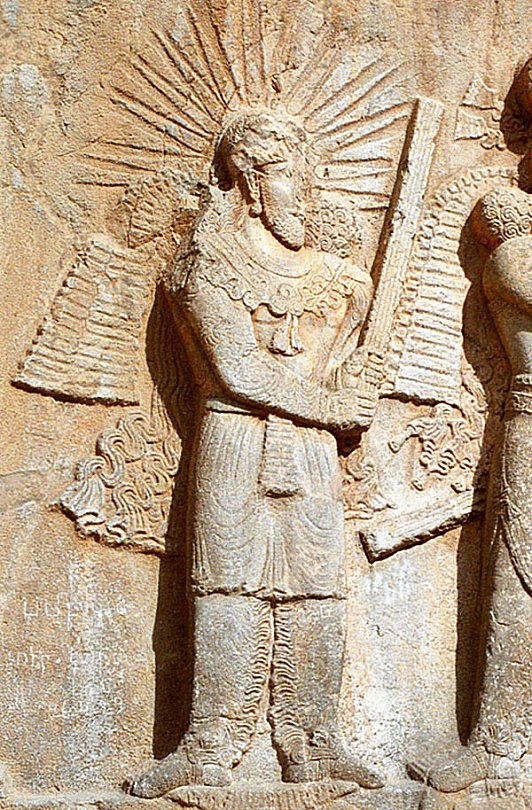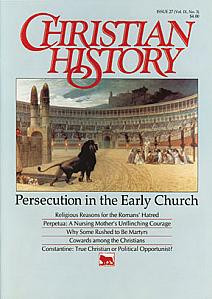Simeon, Bishop of Seleucia, Died a Martyr

Persian sun god from a relief. Wikipedia/ Philippe Chavin
ABOUT THE MIDDLE of the fourth century, many Persian Christians suffered under King Sapores. His magicians, plotting to stamp out Christianity, accused Archbishop Simeon and Ctesiphon, another Christian leader, of secretly sending information to the Roman emperor, who was at war with Persia. Furious, King Sapores came down hard on all Christians, oppressing them with special taxes until they were ruined as well as killing their priests.
He summoned Simeon and ordered him to worship the Persian gods. Simeon refused. He also refused to bow to Sapores as he had previously done. When the king asked why, Simeon replied that on previous occasions he had not been brought to the king in chains and ordered to betray the true God. While free, he readily bowed to the king, but now he would not because he was defending religion and true doctrine. He reasoned with the king, saying that since Sapores was greater than the sun (which the Persians revered as a god), he should not bow to it, because the sun was not a living, thinking being. Threatened with torture, Simeon showed no fear and would not plead for mercy.
The king offered Simeon a choice: either worship the sun god and receive great gifts, or refuse to worship and receive death along with the destruction of all other Persian Christians. When Simeon stood firm, the king committed him to prison, ordering that he be kept there until he made a final decision in his case.
As the guards led Simeon to prison, he saw Usthazares, an old eunuch who had been the king’s tutor. Once a Christian, Usthazares had begun to bow to idols out of fear. Now he rose in deference to Archbishop Simeon. However, Simeon rebuked him sharply for his betrayal of Christ.
Usthazares burst into tears. He removed his expensive clothes and dressed as a mourner. He sat wailing at the palace gate, asking himself what hope he would have when he faced God, considering that Simeon, who knew him on earth, did not have a good word for him and would not greet him.
The king heard of Usthazares’ repentance and was angry. He asked him what he lacked that he was mourning. The eunuch replied that he was doubly worthy of death: first, because he had denied Christ, and secondly, because he had played the hypocrite before the king, pretending to worship the sun. He swore that although he had played the fool before, he would never again be so insane as to worship a creature that God had made rather than the Creator Himself.
The king ordered him beheaded. Usthazares asked only one thing—that the king announce that his sentence was for being a Christian, not for any other crime. The king agreed, thinking to frighten other believers when they learned that even his old tutor was not immune to punishment.
Simeon praised God that Usthazares had repented. On this day, 17 April 341, he was again brought before Sapores. Refusing to yield to the king’s demand that he worship the sun, he was forced to watch while one hundred other Christians were beheaded. He exhorted them, saying that the real death was to deny God out of fear of punishment, and reminded them that everyone has to die sometime. After the hundred were dead, Simeon also was executed along with two other priests from his church, Abedecalaas and Ananias. Sapores’ persecution of Christians lasted for several years.
—Dan Graves
----- ----- -----
For more on persecution of he early Christians, see Christian History #27, Persecution in the Early Church






